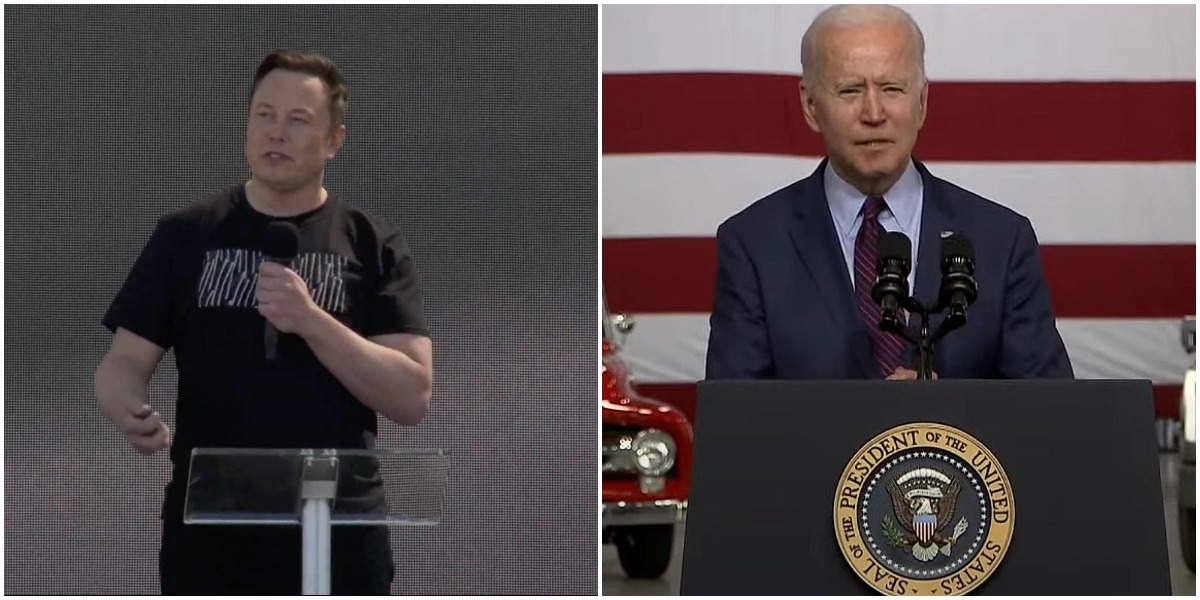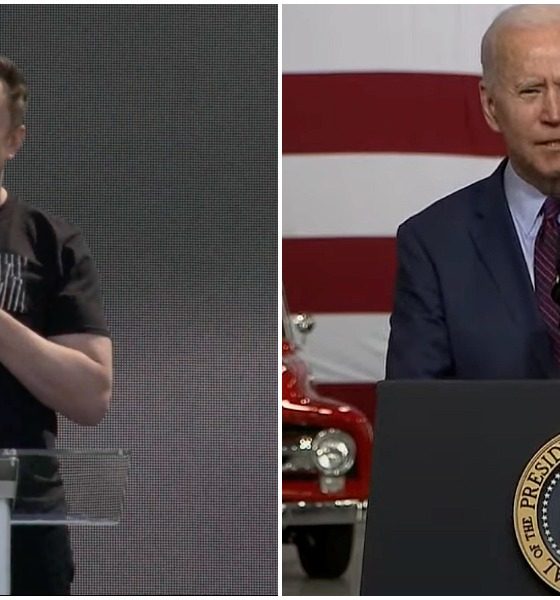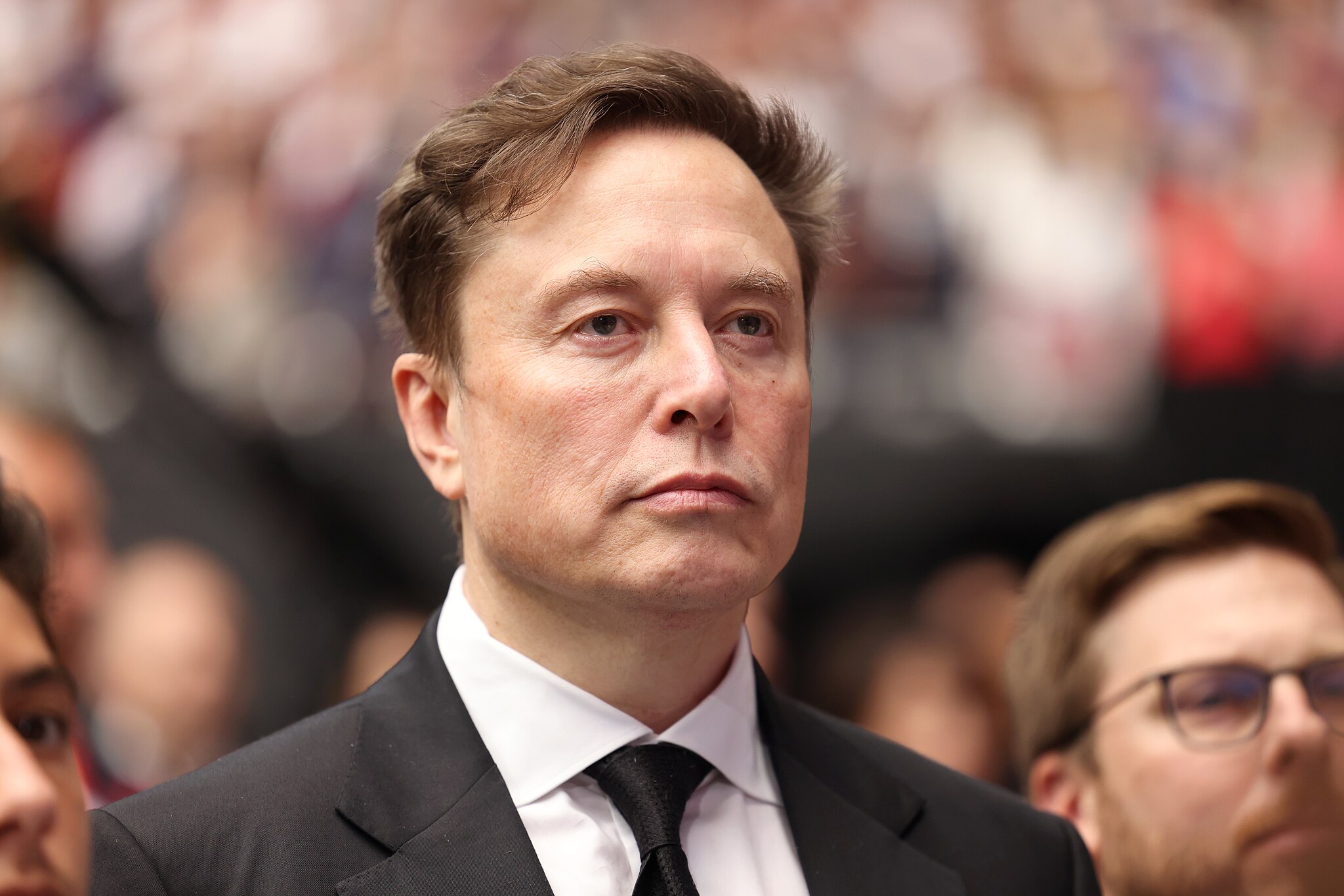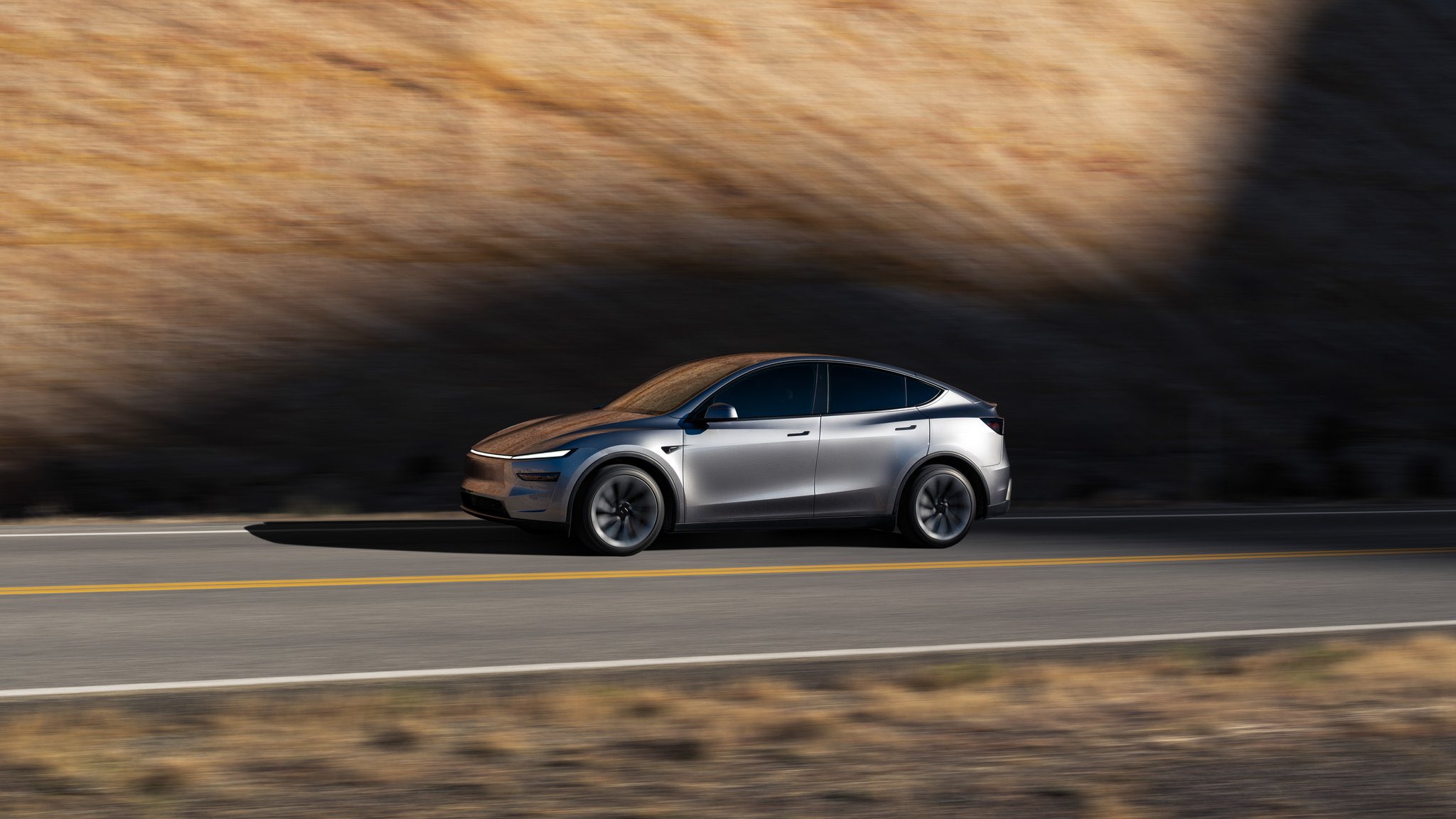

News
A closer look at Joe Biden and Elon Musk’s feud, and the US President’s potential miscalculation
For all intents and purposes, US President Joe Biden and Tesla CEO Elon Musk should agree on a number of things. Both men have worked hard to fight climate change, and both openly support electric vehicles. Yet for the longest time now, a feud seems to have developed between Biden and Musk.
It’s not a stretch to state that a lot of the feud is due to Biden — and it will likely be a gross miscalculation on the President’s part.
It’s easy to shoehorn Elon Musk as a villain. The man’s a billionaire; he’s stated that he is voting against Democrats in the coming elections; he has even traded sarcastic barbs with popular left-leaning politicians over the past months. But what is easily forgotten these days is that Musk has, for the longest time, been a supporter of Democrats, including Biden himself.
Musk said as much recently on Twitter when he noted that he voted for both Hillary Clinton and Joe Biden in the last two presidential elections. Musk was also quite close to the Obama administration. So what really encouraged Musk to switch to the right, even if Biden’s administration has characterized itself as one that is focused on climate issues and sustainability?
Some would note that the Musk and Biden feud started with the US President’s overt support for unions, but things actually started before that. As early as February 2021, Elon Musk hinted at some of his disagreements with the Biden administration. Musk was lobbying for a carbon tax then, but the CEO noted that the Biden team believed that such an initiative “seems too politically difficult.”
Musk has noted recently that his shift to the right is in no small part due to Biden’s administration doing “everything it can to sideline and ignore Tesla.” Musk critics would easily disregard these statements as entitled whining from the CEO (cue the aged Elon Musk Simpson’s “weird nerds” meme), but he does have a point. Since rejecting Musk’s suggestion for a carbon tax, the Biden administration has barely acknowledged Tesla, focusing instead on more traditional automakers that are, for the most part, doing far less for sustainability than Tesla.
This happened recently following what appeared to be Biden’s latest zinger against Musk, where he wished the CEO “lots of luck on his trip to the Moon” when asked about Musk’s concerns about the US economy. Biden proceeded to promote Ford’s efforts to hire 6,000 workers while conveniently denying that Tesla had nearly hired 50,000 people worldwide in the last two years.
Overall, the Biden and Musk feud is downright strange. From an outsider’s perspective, it really doesn’t make sense. Every person who has followed Tesla and SpaceX over the years would know that Musk’s companies are practically a perfect match for politicians on the left. Yet Biden, for some strange reason, opted to antagonize Musk instead. Biden’s not alone either, as other high-profile Democrats have also joined in on the anti-Musk bandwagon — to varying degrees of aggressiveness.
Such a strategy, however, may cost Biden in the upcoming elections. Musk is a prolific CEO, after all, and his social media presence — even if it is likely padded by bots considering Twitter’s issues with fake and spam accounts — is notable. By constantly beating on Musk while ignoring Tesla and SpaceX, Biden and his administration may end up alienating a significant part of the left’s voter base. The upcoming elections would likely show if this would be the case or not.
Don’t hesitate to contact us with news tips. Just send a message to simon@teslarati.com to give us a heads up.

Elon Musk
Elon Musk’s net worth is nearing $800 billion, and it’s no small part due to xAI
A newly confirmed $20 billion xAI funding round valued the business at $250 billion, adding an estimated $62 billion to Musk’s fortune.

Elon Musk moved within reach of an unprecedented $800 billion net worth after private investors sharply increased the valuation of xAI Holdings, his artificial intelligence and social media company.
A newly confirmed $20 billion funding round valued the business at $250 billion, adding an estimated $62 billion to Musk’s fortune and widening his lead as the world’s wealthiest individual.
xAI’s valuation jump
Forbes confirmed that xAI Holdings was valued at $250 billion following its $20 billion funding round. That’s more than double the $113 billion valuation Musk cited when he merged his AI startup xAI with social media platform X last year. Musk owned roughly 49% of the combined company, which Forbes estimated was worth about $122 billion after the deal closed.
xAI’s recent valuation increase pushed Musk’s total net worth to approximately $780 billion, as per Forbes’ Real-Time Billionaires List. The jump represented one of the single largest wealth gains ever recorded in a private funding round.
Interestingly enough, xAI’s funding round also boosted the AI startup’s other billionaire investors. Saudi investor Prince Alwaleed Bin Talal Alsaud held an estimated 1.6% stake in xAI worth about $4 billion, so the recent funding round boosted his net worth to $19.4 billion. Twitter co-founder Jack Dorsey and Oracle co-founder Larry Ellison each owned roughly 0.8% stakes that are now valued at about $2.1 billion, increasing their net worths to $6 billion and $241 billion, respectively.
The backbone of Musk’s net worth
Despite xAI’s rapid rise, Musk’s net worth is still primarily anchored by SpaceX and Tesla. SpaceX represents Musk’s single most valuable asset, with his 42% stake in the private space company estimated at roughly $336 billion.
Tesla ranks second among Musk’s holdings, as he owns about 12% of the EV maker’s common stock, which is worth approximately $307 billion.
Over the past year, Musk crossed a series of historic milestones, becoming the first person ever worth $500 billion, $600 billion, and $700 billion. He also widened his lead over the world’s second-richest individual, Larry Page, by more than $500 billion.
News
Tesla Cybercab sighting confirms one highly requested feature
The feature will likely allow the Cybercab to continue operating even in conditions when its cameras could be covered with dust, mud, or road grime.

A recent sighting of Tesla’s Cybercab prototype in Chicago appears to confirm a long-requested feature for the autonomous two-seater.
The feature will likely allow the Cybercab to continue operating even in conditions when its cameras could be covered with dust, mud, or road grime.
The Cybercab’s camera washer
The Cybercab prototype in question was sighted in Chicago, and its image was shared widely on social media. While the autonomous two-seater itself was visibly dirty, its rear camera area stood out as noticeably cleaner than the rest of the car. Traces of water were also visible on the trunk. This suggested that the Cybercab is equipped with a rear camera washer.
As noted by Model Y owner and industry watcher Sawyer Merritt, a rear camera washer is a feature many Tesla owners have requested for years, particularly in snowy or wet regions where camera obstruction can affect visibility and the performance of systems like Full Self-Driving (FSD).
While only the rear camera washer was clearly visible, the sighting raises the possibility that Tesla may equip the Cybercab’s other external cameras with similar cleaning systems. Given the vehicle’s fully autonomous design, redundant visibility safeguards would be a logical inclusion.
The Cybercab in Tesla’s autonomous world
The Cybercab is Tesla’s first purpose-built autonomous ride-hailing vehicle, and it is expected to enter production later this year. The vehicle was unveiled in October 2024 at the “We, Robot” event in Los Angeles, and it is expected to be a major growth driver for Tesla as it continues its transition toward an AI- and robotics-focused company. The Cybercab will not include a steering wheel or pedals and is intended to carry one or two passengers per trip, a decision Tesla says reflects real-world ride-hailing usage data.
The Cybercab is also expected to feature in-vehicle entertainment through its center touchscreen, wireless charging, and other rider-focused amenities. Musk has also hinted that the vehicle includes far more innovation than is immediately apparent, stating on X that “there is so much to this car that is not obvious on the surface.”
News
Tesla seen as early winner as Canada reopens door to China-made EVs
Tesla had already prepared for Chinese exports to Canada in 2023 by equipping its Shanghai Gigafactory to produce a Canada-specific version of the Model Y.

Tesla seems poised to be an early beneficiary of Canada’s decision to reopen imports of Chinese-made electric vehicles, following the removal of a 100% tariff that halted shipments last year.
Thanks to Giga Shanghai’s capability to produce Canadian-spec vehicles, it might only be a matter of time before Tesla is able to export vehicles to Canada from China once more.
Under the new U.S.–Canada trade agreement, Canada will allow up to 49,000 vehicles per year to be imported from China at a 6.1% tariff, with the quota potentially rising to 70,000 units within five years, according to Prime Minister Mark Carney.
Half of the initial quota is reserved for vehicles priced under CAD 35,000, a threshold above current Tesla models, though the electric vehicle maker could still benefit from the rule change, as noted in a Reuters report.
Tesla had already prepared for Chinese exports to Canada in 2023 by equipping its Shanghai Gigafactory to produce a Canada-specific version of the Model Y. That year, Tesla began shipping vehicles from Shanghai to Canada, contributing to a sharp 460% year-over-year increase in China-built vehicle imports through Vancouver.
When Ottawa imposed a 100% tariff in 2024, however, Tesla halted those shipments and shifted Canadian supply to its U.S. and Berlin factories. With tariffs now reduced, Tesla could quickly resume China-to-Canada exports.
Beyond manufacturing flexibility, Tesla could also benefit from its established retail presence in Canada. The automaker operates 39 stores across Canada, while Chinese brands like BYD and Nio have yet to enter the Canadian market directly. Tesla’s relatively small lineup, which is comprised of four core models plus the Cybertruck, allows it to move faster on marketing and logistics than competitors with broader portfolios.








